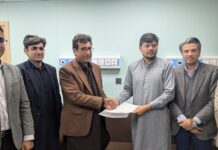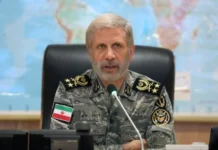 https://twitter.com/home https://www.facebook.com/Shabbir.Hussain191
https://twitter.com/home https://www.facebook.com/Shabbir.Hussain191By Shabbir Hussain
LAHORE, July 21 (Alliance News): In a significant step towards the empowerment and rehabilitation of vulnerable children, the Government of Punjab has launched a strategic initiative to provide technical training and market-driven skills to children under state care.
Spearheaded by Chief Minister Maryam Nawaz Sharif, the program reflects a renewed commitment to the long-term welfare and economic independence of marginalized youth.
This forward-looking initiative is the result of a collaboration between the Child Protection & Welfare Bureau (CPWB) and the Punjab Skills Development Fund (PSDF), marking a milestone in child welfare policy and vocational development.
The program is designed to equip children with practical, market-relevant skills that will enable them to secure sustainable livelihoods and reintegrate into society with dignity and purpose.
The announcement came after a productive meeting between Chairperson CPWB Sarah Ahmad and CEO of PSDF, Mr. Ahmad Khan, where the framework of the collaboration was finalized.

The meeting emphasized the shared vision of both institutions to ensure that children in protective custody are not merely sheltered, but are also given the tools to shape a better future.
Speaking on the occasion, CPWB Chairperson Chairperson Sarah Ahmad said, “ Under the visionary leadership of Chief Minister Maryam Nawaz Sharif, we are not just protecting children from harm — we are empowering them with the ability to grow, thrive, and contribute meaningfully to society.
This partnership with PSDF ensures that our children receive access to the same opportunities as any other youth in Pakistan.”
The children currently residing in the Child Protection & Welfare Bureau’s facilities will now be enrolled in technical and vocational training programs managed by the PSDF.
These programs span a wide range of high-demand sectors, including information technology, mechanical and electrical trades, fashion design, hospitality services, and other emerging industries.
The training curriculum is tailored to match the current job market trends and employer requirements, ensuring employability upon completion.
According to PSDF CEO Ahmad Khan, “This collaboration is not just a social responsibility but an investment in Pakistan’s future. By equipping these children with relevant and high-demand skills, we are helping them transition from dependency to self-reliance.
It is our mission to leave no segment of society behind in the skilling revolution.”
The move also aligns with the broader Sustainable Development Goals (SDGs), particularly SDG 4 (Quality Education), SDG 8 (Decent Work and Economic Growth), and SDG 10 (Reduced Inequalities).
By targeting children who are often left out of mainstream educational and vocational pathways, the initiative breaks barriers of exclusion and opens new avenues for economic participation.
In recent years, PSDF has emerged as a leader in technical and vocational education and training (TVET) in Punjab, funded through a public-private partnership model.
It has trained over 500,000 youth across the province, helping them secure jobs both locally and internationally.
The integration of children from CPWB into this robust system marks a new chapter in inclusive skilling.
Social workers, educationists, and child rights advocates have hailed the move as a timely intervention.

Dr. Samina Malik, an expert in child welfare, noted, “Children in protective custody are often victims of abuse, trafficking, or abandonment. Giving them skills and career options is not charity — it is justice. It gives them a second chance at life.”
The initiative is also expected to strengthen reintegration programs by providing the trained children with employment opportunities or support in setting up their own small businesses.
To this end, micro-financing options and entrepreneurship training may be added to the collaboration in future phases.
In addition to technical training, the children will also receive life skills education, psychological counseling, and mentorship support to help them transition smoothly into adulthood.
These wrap-around services will ensure that their growth is holistic, balancing mental, emotional, and professional development.
Chief Minister Maryam Nawaz Sharif has consistently emphasized the importance of inclusive governance and uplift of the marginalized, particularly women, children, and minorities.
This initiative reflects her government’s resolve to translate policy into meaningful, long-term change at the grassroots level.
The Child Protection & Welfare Bureau, established to rescue and rehabilitate destitute and neglected children, is now shifting from a shelter-based model to a development-based one.
By offering children not just refuge but a roadmap to success, the bureau is reimagining its role as an incubator for future-ready citizens.
As the collaboration moves forward, monitoring and evaluation mechanisms will be set up to track the progress of children through the training and into employment. Feedback from both trainers and trainees will inform future improvements to the program.
This initiative is more than just a government project — it is a social movement to restore hope, dignity, and opportunity to children who have endured life’s harshest trials. By investing in their potential today, Punjab is securing a stronger, more inclusive tomorrow.






